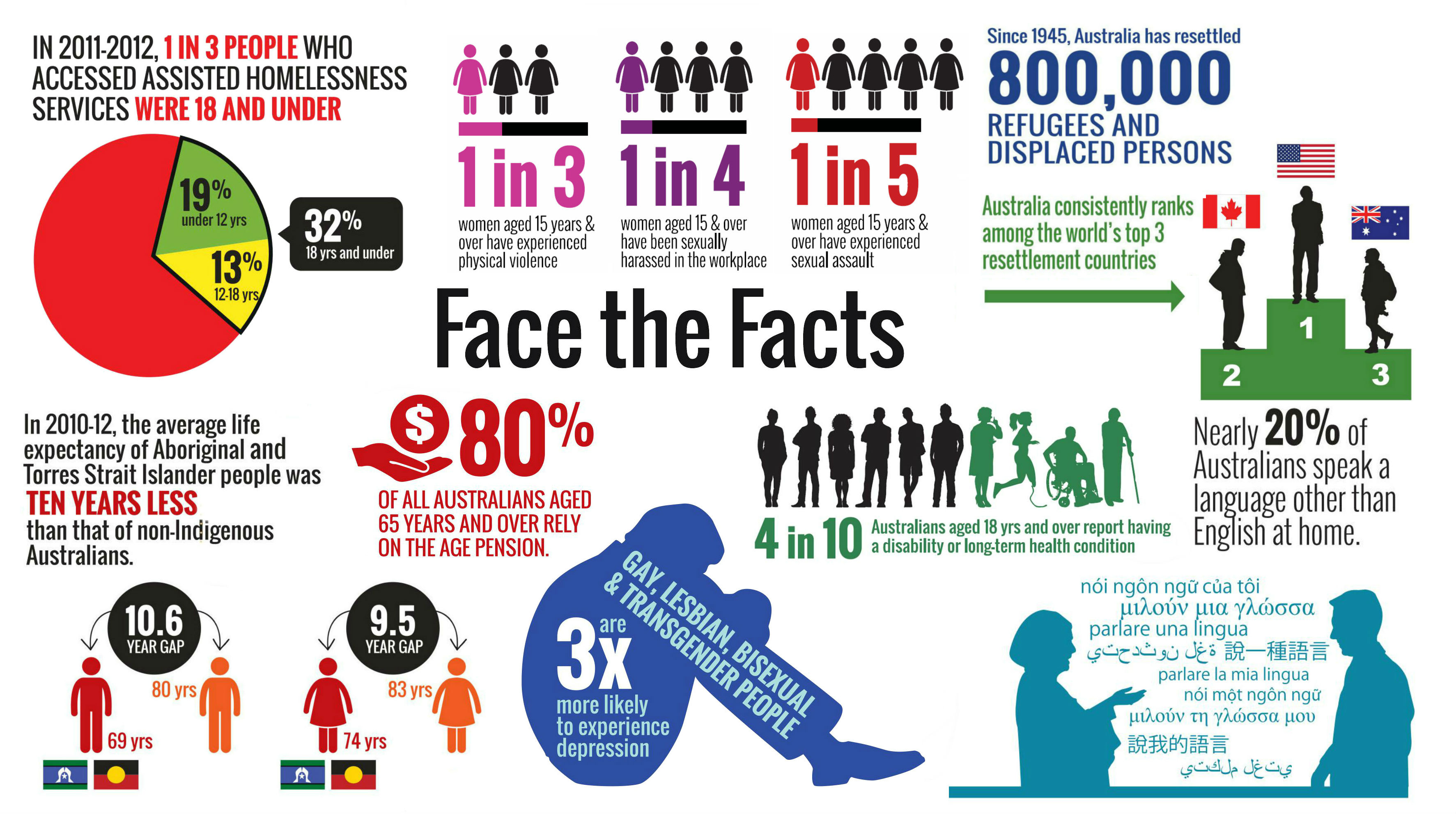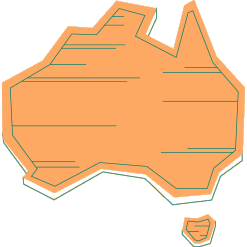Human Rights in Australia
Human rights are an important part of our lives. In fact, they are so much a part of everyday living that we often take them for granted.
Consider how often you drink clean water, eat food, go to school, say or write what you think, get treated by a doctor, practise a religion (or not), or expect to be treated fairly by others.
All of these everyday activities depend on the adequate protection of your human rights, and the rights of others.
Australia has a strong and proud record on human rights. However, that record is not perfect. Some people are denied their basic rights because of their colour, race, sex, sexuality, a disability or some other aspect of who they are.
Scroll down to explore the following questions:
- What human rights issues exist in Australia?
- How are human rights protected in Australia?
- What International human rights treaties has Australia signed up to?
What human rights issues exist in Australia?
When people in Australia think about human rights, we often focus on violations that happen in other countries. Human rights are seen in terms of problems such as political dictatorship, torture, or unlawful executions.
Sometimes violations such as these happen on a large scale overseas and there is a tendency to think that, by comparison, any human rights problems in Australia are minor. However, human rights violations of one kind or another occur in all countries, including Australia.
Some groups in Australia are particularly vulnerable to human rights abuses. They include: Aboriginal and Torres Strait Islander people, asylum seekers, migrants from non-English speaking backgrounds, those living in poverty, people with a disability, and other groups.
See the following infographic for some relevant statistics, or access more information on our Face the facts page.
Human rights issues can potentially affect anyone. Some people might experience discrimination in the workplace because of their age, race or gender. Other people with different sexual orientations or gender identities may be bullied for how they express themselves or who they are attracted to. Children and young people can be subjected to violence in the playground or at home. No matter what a person's status in society, they or a family member may at some stage in their lives be affected by a violation of their human rights.
In the following quote, the former Social Justice Commissioner, Mick Dodson, spoke of what human rights means in Australia for Aboriginal and Torres Strait Islander people. He used the term 'social justice', but he might just as easily have spoken of human rights generally:
Mick Dodson, Social Justice Commissioner (1993 - 1998)
How are human rights protected in Australia?
Everyone has the responsibility to respect the human rights of others. Within Australia, the Australian Government has particular responsibilities to ensure that human rights are protected.
In order to ensure that the human rights standards contained in international treaties are observed and enforceable within Australia, the government must introduce them into domestic law. This process is known as ‘ratification’. Once international human rights standards are protected in national legislation, the Australian court system is able to ensure that they are protected and cannot be overruled by any state or territory legislation that contradicts the treaty.
State and territory governments also have a responsibility to fulfil Australia’s human rights responsibilities. The state-level governments have the power to make and administer many of the laws that are relevant to human rights, such as laws relating to justice, health and education issues.
As a federation of states with a Westminster system of government, Australia's system of human rights protection has evolved according to its own unique history, and alongside the international human rights system, during the 100 years since Federation.
Our system of human rights protection can be found in:
- the Australian Constitution and the Constitutions of the states and territories
- centuries of common law, inherited from England
- statutory laws, especially federal and state anti-discrimination laws
- an independent judiciary
- democratically elected governments
- a free and questioning media
- a strong, vibrant civil society, and
- bodies created to advance the promotion and protection of human rights, such as the Australian Human Rights Commission.
There are also a number of federal laws that exist to protect people from discrimination and breaches of human rights. They include:
- Age Discrimination Act 2004
- Disability Discrimination Act 1992
- Racial Discrimination Act 1975
- Sex Discrimination Act 1984
- Australian Human Rights Commission Act 1986
In addition to the efforts of the Australian Government, the Australian Human Rights Commission is responsible for overseeing and reporting on the protection of human rights in Australia. Find out more about the work of the Australian Human Rights Commission.
What international human rights treaties has Australia signed up to?
As new international standards have been developed, Australia has either endorsed non-binding human rights instruments such as the Universal Declaration of Human Rights and the Declaration on the Rights of Indigenous Peoples or has signed and ratified binding legal instruments such as the international human rights treaties.
Australia is a party to seven of the key human rights treaties:
- International Covenant on Civil and Political Rights (ICCPR)
- International Covenant on Economic, Social and Cultural Rights (ICESCR)
- Convention on the Rights of the Child (CRC)
- Convention on the Elimination of All Forms of Discrimination against Women (CEDAW)
- Convention on the Rights of Persons with Disabilities (CRPD)
- Convention on the Elimination of All Forms of Racial Discrimination (CERD)
- Convention against Torture (CAT).
Australia has also ratified three of the mechanisms that give individuals the right to complain directly to United Nations bodies about violations of their rights.



